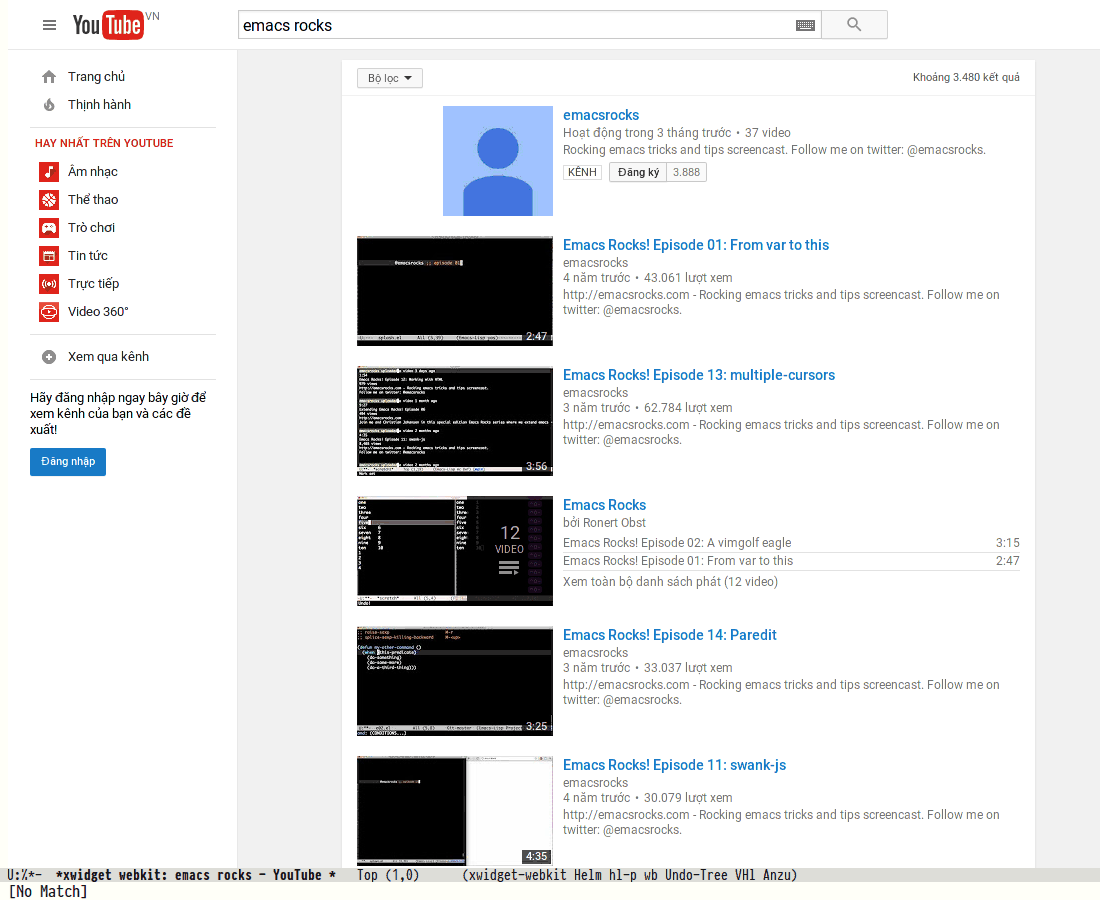Emacs 25 EasyPG Issue
Upgrading software is always a hassle. Missing dependencies and renamed variables alone could make one's life miserable. In a word, things just break. Even for a mature program like Emacs that has been around for more than 3 decades.
I recently upgraded emacs 24.5 to 25.1, and most things worked seamlessly. A really nice feature made available is that the completion buffer will only pop up as big as needed, a lot smoother than the previous design of rigidly taking up half of the window. One new feature that gets me really excited is the Xwidgets. Just take a look at this snapshot, but take an extra look at the modeline, meaning that it runs inside emacs.

(gif credit to tuhdo)
Emacs finally has the capability of running as a full operating system with pretty graphics, though it's still in "alpha" status. A life entirely inside emacs is possible in the near future. Unfortunate for Mac OS X users, a homebrew build for emacs with Xwidgets is still not available currently, but you can always build from source by yourself.
Back to bussiness about EasyPG problem. The problem starts with gnus being broken in my emacs 25. Initially I tried to find answers related to gnus, but the error message says something otherwise.
Error while decrypting with "gpg2":
gpg: encrypted with 2048-bit RSA key, ...
gpg: public key decryption failed: Operation cancelled
gpg: decryption failed: No secret key
I use ~/.authinfo.gpg to store my password and emacs automatically
encrypt it with my GnuPG key (great feature! try it).
It complained about not being about to read my password file
~/.authinfo.gpg which is protected with my GnuPG passphrase.
Since Emacs use EasyPG as the interface to GnuPG program, we can now
locate the problem to EasyPG. When I tried to open ~/.authinfo.gpg
file, emacs automatically loads it through EasyPG. But emacs did not
bring up the interface to enter the passphrase for my secret key. Here
is the relevant error message for me.
gpg-agent: command get_passphrase failed: inappropriate ioctl for device
It looks like that emacs cannot read my passphrase through some interface.
Everywhere I looked, I couldn't find a solution. But then I came across a source diff for epa.el for emacs 24.5 and emacs 25.1. It gives me a nice insight of what is going on inside the epa.el (EasyPG) source code. I have reproduced the relevant diff below.
(defcustom epa-pinentry-mode nil
"The pinentry mode.
GnuPG 2.1 or later has an option to control the behavior of
Pinentry invocation. Possible modes are: `ask', `cancel',
`error', and `loopback'. See the GnuPG manual for the meanings.
In epa commands, a particularly useful mode is `loopback', which
redirects all Pinentry queries to the caller, so Emacs can query
passphrase through the minibuffer, instead of external Pinentry
program."
:type '(choice (const nil)
(const ask)
(const cancel)
(const error)
(const loopback))
:group 'epa
:version "25.1")
On line 47 of epa.el for emacs 25.1, a new variable
epa-pinentry-mode is introduced with defcustom.
Its documentation says something about the invocation of pinentry,
which sounds like the interface for entering the passphrase. And as
the documentation says, by setting epa-pinentry-mode to 'loopback
Emacs will handle querying the passphrase through minibuffer, the
perfect desired behavior.
Now I add this line of code to my .emacs, and problem solved! Though
good proctice might add it though custom-set-variables.
(setq epa-pinentry-mode 'loopback)
A caveat if you are a Mac OS X user like I am, is that brew install
gnupg2 would only install GnuPG 2.0, but not GnuPG 2.1. To install
GnuPG 2.1, you need to do brew install gnupg21. The reason for this
design is that GnuPG 2.1 has a new keychain format that is not
compatible with GnuPG 2.0 and GnuPG 1.x.
Somehow emacs 25's EasyPG only supports GnuPG 2.1 in my case, so
you might have to look out for that.